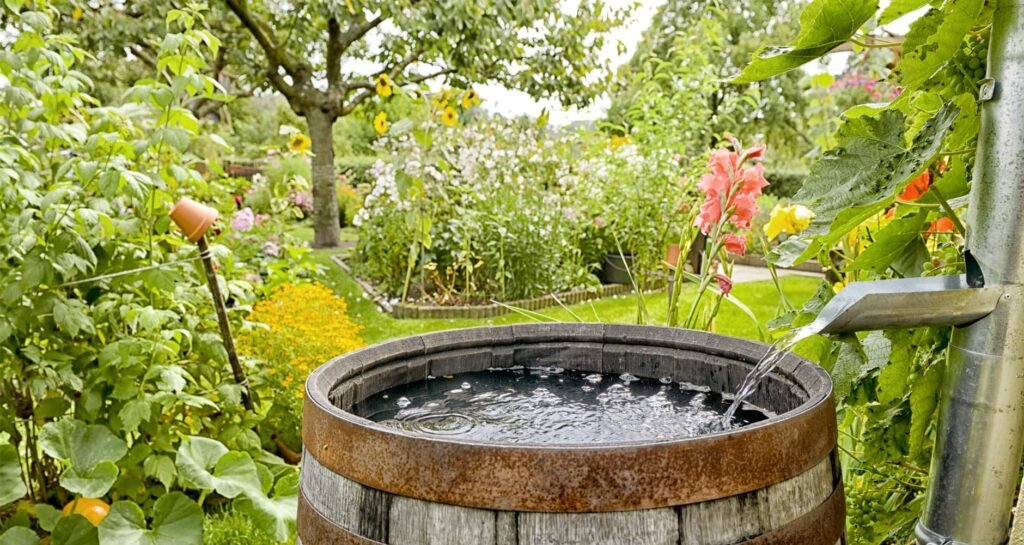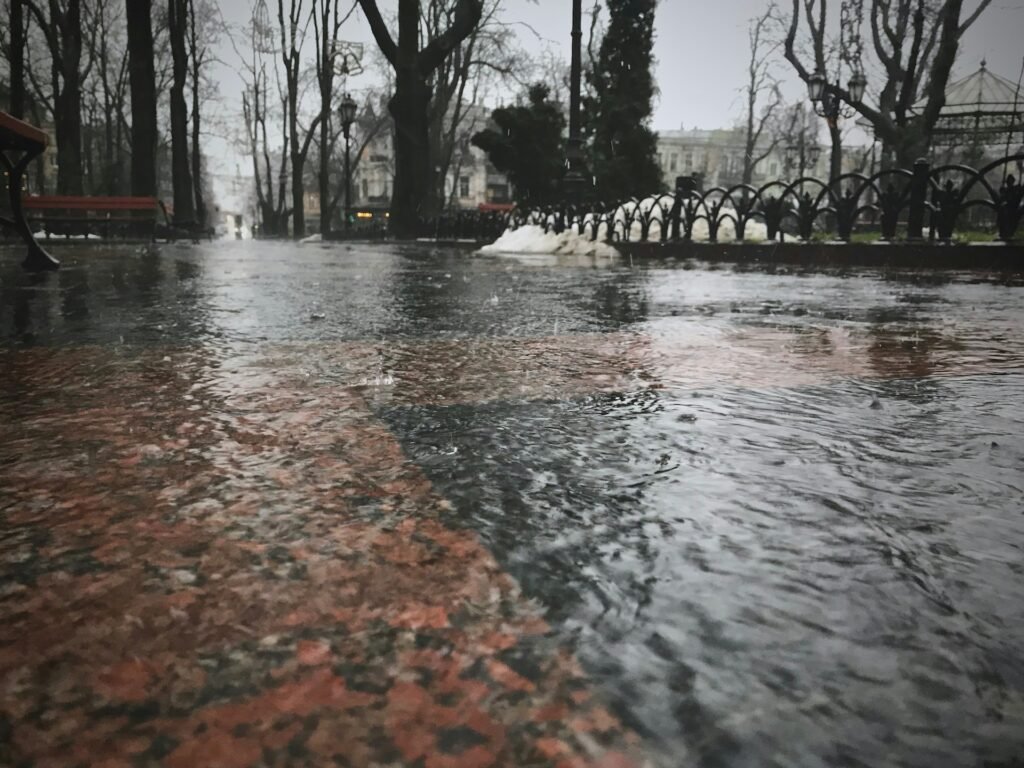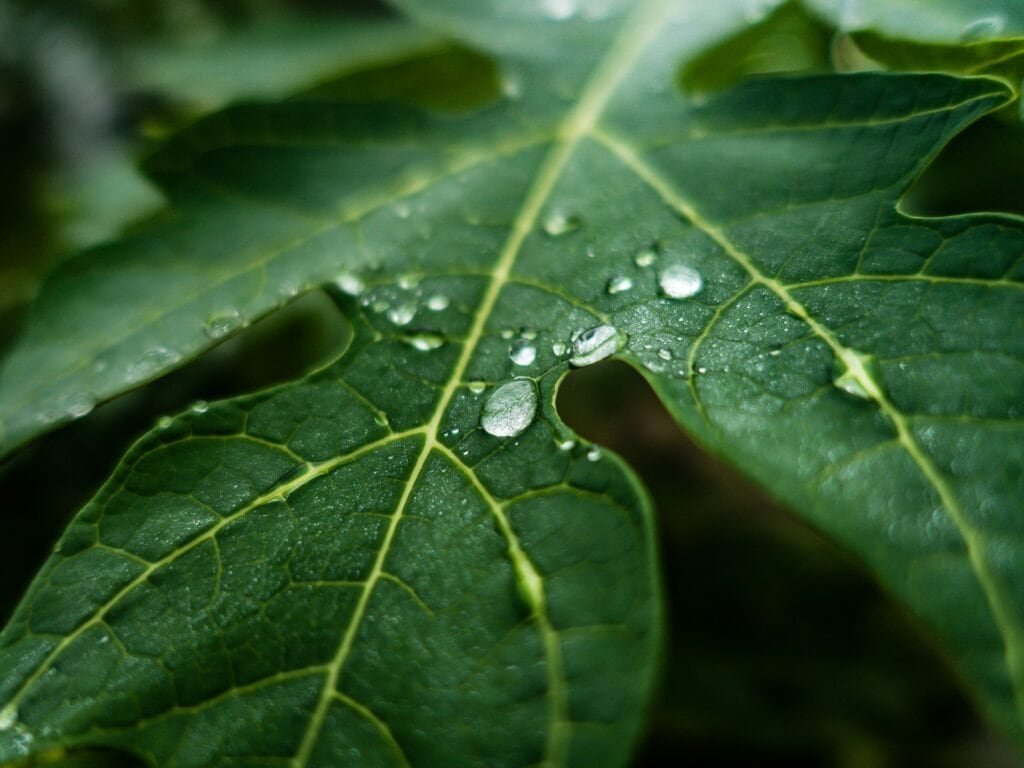Is it illegal to collect rainwater? This question perplexes many as they seek to engage in sustainable living practices. The legality of rainwater collection varies across the United States, with states adopting diverse regulations that reflect their unique environmental and legal considerations. Out of all 48 states, rainwater harvesting is either not regulated or encouraged to varying degrees.
While most states have restrictions, these usually pertain to the manner and scale at which rainwater is collected. For example, rainwater in California is subject to specific legal provisions, whereas the state of Texas offers incentives for rainwater harvesting systems.
Navigating these laws can be challenging, but understanding the regulations is crucial for anyone looking to incorporate rainwater collection into their lifestyle, whether for watering plants or other uses.

Understanding Rainwater Collection Legality
Comprehending the legal landscape of rainwater collection is fundamental for homeowners, gardeners, and environmental enthusiasts. It’s a patchwork of state regulations rather than a single, nationwide policy.
While the specifics may vary, general themes emerge, such as sustainability efforts, water rights, and public health concerns, all of which shape the legal context of rainwater collection in your region.
Why Some States Impose Restrictions on Rainwater Harvesting
Some states impose restrictions on rainwater harvesting due to concerns about water rights and resource allocation. Especially in arid regions where water is scarce, regulations may be in place to ensure equitable distribution and to protect existing water rights. These restrictions are also a means to control the quality of water being collected, ensuring it’s safe for use.
The Historical Context Behind Rainwater Collection Laws
The history of rainwater collection laws is deeply rooted in the doctrine of water rights, which traditionally prioritized the use of water for agricultural and municipal needs. As sustainability has gained importance, laws have evolved, allowing for modern practices of rainwater harvesting while balancing historical precedents and rights.
Comparing State Laws and Incentives for Rainwater Collection
Comparing state laws reveals a spectrum of approaches to rainwater collection, from stringent regulations to generous incentives. These differences often reflect the state’s climate, water supply challenges, and policy priorities, showcasing a complex interplay between encouraging sustainable practices and managing water resources effectively.
State-by-State Rainwater Collection Laws
Each state has crafted its approach to rainwater collection, resulting in a mosaic of laws and guidelines. Residents must navigate these to understand what is permissible and what incentives or restrictions might apply to their rainwater harvesting endeavors.

Rainwater Harvesting Laws in the Western United States
The Western United States, with its varying climates and water availability, presents a diverse array of laws regarding rainwater collection, from permissive to restrictive.
• California: Some Restrictions with Specific Provisions
In response to its unique environmental challenges, California passed the Rainwater Capture Act of 2012, easing restrictions and allowing commercial and governmental landowners to operate rain barrel systems and rainwater capture facilities. However, these systems must adhere to state water resources board requirements, ensuring that they are beneficial and do not harm the environment or infringe on existing water rights.
• Colorado: Limited Allowance with Conditions
Colorado’s approach to rainwater collection reflects its complex water rights history. The state permits limited rainwater collection for residential property owners under specific conditions, such as using only rooftop catchment systems and restricting the amount stored. These conditions serve to maintain the delicate balance of water rights among users.
• Arizona: No Restriction and Offers Incentives
Arizona, with its arid environment, has embraced rainwater harvesting by imposing no restrictions and offering incentives. The state encourages residents to collect rainwater as a means to conserve water and reduce reliance on municipal sources, aligning with its broader water conservation strategies.
• Oregon: Some Restriction with Incentive Programs
Oregon, with its diverse climate, imposes some restrictions on rainwater harvesting but also offers incentive programs. These programs are designed to promote sustainable water use practices while ensuring that the collection methods comply with state health and safety regulations.
• Rainwater Collection Rules in the Midwest
The Midwest, with its varying climates and water resources, has its set of rules governing rainwater collection that residents must consider.
• Illinois: Some Restrictions Apply
Illinois allows rainwater collection but with some restrictions in place. These regulations aim to ensure that the collected water is used safely and responsibly, without negatively impacting the state’s water resources or the health of its citizens.
• Kansas: Permit Requirements
Kansas, a state with significant agricultural interests, requires permits for collecting rainwater. This regulatory approach helps manage the state’s water resources effectively, ensuring that rainwater harvesting is conducted in a manner that respects existing water rights and usage patterns.
• Michigan: No Restriction and Offers Incentives
Michigan stands out in the Midwest for its liberal stance on rainwater collection. With no restrictions in place, the state also offers incentives to encourage residents to adopt rainwater harvesting practices, supporting efforts to manage water resources sustainably and efficiently.
• Ohio: Some Restrictions Enforced
In Ohio, residents are encouraged to collect rainwater for outdoor purposes, though some restrictions are in place. The state’s doctrine states that “anyone who collects rainwater should ensure they do not disrupt the cycle of rainfall,” which means that the storage and use of harvested rainwater must be managed carefully to avoid any negative environmental impact.
While the state highly encourages rainwater collection for uses such as gardening, the availability of rainwater harvesting systems and the extent of the restrictions can vary across different local jurisdictions.
Southern States and Rainwater Collection Policies
Many southern states encourage residents to collect rainwater, recognizing the benefits it brings to the environment and water conservation efforts. However, some states restrict rainwater collection to ensure that the practice doesn’t disrupt the cycle of rainfall or infringe upon water rights.
The policies and incentives in place often reflect the local climate and water scarcity issues, with each state implementing regulations that best suit their environmental and legal frameworks.
• Florida: No Restriction and Offers Incentives
Florida stands out for its liberal stance on rainwater harvesting; there are no restrictions, and residents are highly encouraged to collect rainwater. To promote sustainable water usage, the state offers incentives for installing rainwater collection systems, such as rebates or tax credits. This proactive approach aims to ease the strain on traditional water supplies and encourage residents to take an active role in water conservation.
• Georgia: Some Restriction Governing Usage
In Georgia, while residents are permitted to harvest rainwater, some restrictions govern its usage, particularly as a source of drinking water. The state ensures that rainwater collection systems, including the gutter system, are structured in a way that maintains public health standards. Homeowners are encouraged to use collected rainwater for non-potable purposes, such as irrigation and other outdoor uses.
• Texas: Some Restriction with Incentives Available
Texas recognizes the importance of rainwater harvesting in water conservation, especially in areas where water scarcity is a concern. Some restrictions are in place, but the state actively promotes rainwater collection by offering incentives.
These incentives aim to encourage Texans to incorporate rainwater collection systems into their homes and businesses, thereby reducing reliance on conventional water sources.
• Virginia: Some Restrictions in Place
Virginia maintains some restrictions on rainwater collection, mainly to manage resource allocation and environmental impact. Nonetheless, the state acknowledges the benefits of rainwater harvesting and provides guidance and support for those interested in implementing a rainwater collection system. Residents are advised to familiarize themselves with local regulations to ensure compliance while taking advantage of the opportunities for sustainable water use.
• New York: No Restriction on Collection
New York offers a favorable environment for rainwater harvesting, imposing no restrictions on the collection and use of rainwater. Residents can freely install a rainwater collection system, including gutter systems that direct rainwater into storage containers for various household purposes. This unrestricted approach allows for greater flexibility and innovation in managing water resources.
• Massachusetts: Unregulated Rainwater Collection
Massachusetts has taken a hands-off approach to rainwater harvesting, with unregulated rainwater collection across the state. Homeowners and businesses are free to set up rainwater collection systems without encountering legal barriers, making it easier for residents to contribute to water conservation efforts and reduce their environmental footprint.
• New Jersey: Incentives for Rainwater Harvesting
Recognizing the value of rainwater as a resource, New Jersey offers incentives to those who implement rainwater harvesting systems. These incentives are designed to encourage residents to collect rainwater for non-potable uses, thereby promoting sustainable water practices and easing the demand for municipal water systems.
• Pennsylvania: No Restriction with Incentives
Pennsylvania does not restrict rainwater collection and actively promotes it by offering incentives that encourage residents to harness this natural resource. With a focus on sustainability, the state supports rainwater harvesting initiatives that can reduce the consumption of treated water for non-potable applications.

Permits and Regulations for Rainwater Collection
While the regulation of rainwater collection varies greatly across the United States, understanding and adhering to local permits and regulations is crucial for legal compliance and sustainable practice.
States and localities that promote rainwater harvesting often have guidelines in place to ensure that collection systems are constructed and maintained in a manner that protects public health and water rights.
Why Some States Require Permits for Rainwater Harvesting
Some states mandate permits for rainwater harvesting as a means to manage water resources and maintain public safety. Permits help to standardize rainwater collection practices, ensuring that systems do not create health risks or infringe on existing water rights. By requiring permits, states can better oversee the impact of rainwater collection on the local environment and water supply.
How to Obtain a Permit for Collecting Rainwater
Obtaining a permit for collecting rainwater typically involves contacting your local Department of Energy or equivalent regulatory body. It’s important to note that while it is not illegal to collect rainwater, adherence to federal laws and local ordinances is essential.
Once rain is collected, the Centers for Disease Control and Prevention advises treatment if the water is intended for drinking, to eliminate germs and other contaminants. Permits often come with guidelines on system design and maintenance, ensuring that water collected is suitable for its intended use, such as watering plants or other non-potable purposes.
Consequences of Non-Compliance with Rainwater Collection Laws
Failure to comply with rainwater collection laws can lead to legal penalties, including fines and mandated alterations to non-compliant systems. Ignoring permit requirements or restrictions can also have environmental consequences, such as negatively impacting local water tables or ecosystems. It is, therefore, essential for residents to be aware of and follow their state and local regulations regarding rainwater harvesting.
Conclusion
Whether you’re interested in rainwater harvesting for its environmental benefits, economic incentives, or simply to engage in sustainable living practices, it’s important to stay informed about your state’s stance on the issue.
By understanding the nuances of your local regulations and how they align with your rainwater collection goals, you can ensure that you’re compliant and contributing positively to your community’s water conservation efforts. In conclusion, while rainwater collection is widely supported across the country, it’s essential to ask, “Is it Illegal to Collect Rainwater?” to ensure you are adhering to your state’s specific guidelines.


